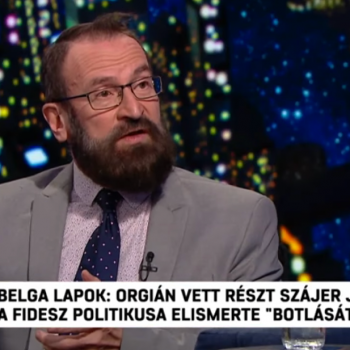The past weekend was a rough one for British Columbia, with a record number of coronavirus deaths and hospitalizations as well as a recent spike in new cases that’s left Provincial Health Officer Dr. Bonnie Henry pleading with the province to avoid “thinking it may be OK to bend the rules.”
So it’s a particularly bad look for Langley church Riverside Calvalry Chapel to openly flout those rules and then, when faced with the consequences of that decision, protest the loss of “religious freedom.”

The small storefront church chose to gather this past Sunday despite a recently-updated provincial health order prohibiting in-person services. Accordingly, local bylaw officers and members of the local RCMP levied a $2,300 fine against the congregation.
RCMP Corporal Holly Largy told The Globe and Mail that the force would rather educate people than fine them, and only resorted to more punitive members after the congregation refused to disperse.
Riverside is the first British Columbia church to face fines for their open rejection of pandemic precautions, but they’re unlikely to be the last. This same weekend, two churches in Chilliwack — the Free Grace Baptist Church and Chilliwack Free Reformed Church — insisted on holding worship services, loudly declaring that any attempts to stop them would be unconstitutional.
To extend Riverside and other congregations the benefit of the doubt, the rules have changed recently. In an effort to control and limit COVID-19 outbreaks ahead of the holiday season, Dr. Henry has tightened restrictions on places of worship. Initially, when she introduced restrictions, she said that church services were not included among prohibited social gatherings; after about two weeks, that changed. While churches may remain open, and certain small-scale activities are permitted — baptisms, funerals or weddings, for instance, or individual prayer and confession — full church services remain too risky.
But congregants’ refusal to disperse once informed of the restrictions on services suggest that this is no mere misunderstanding. Congregants interviewed by CBC News gave every indication of deliberate defiance. They questioned Henry’s decision, complaining that liquor stores were considered more essential than churches, and spoke approvingly of “churches standing up” and “a movement afoot” to defy public health rules.
Some church members even argued that the government and medical establishment was deceiving the public by inflating case numbers.
Riverside pastor Brent Smith didn’t comment on those allegations, but he certainly appears to share his congregation’s belief that churches are being. He says legal action against the government are a possibility:
We have a team of lawyers that are preparing a statement and will be representing us on these matters. We certainly are not looking for a fight. We just believe there has been many inconsistencies with what is essential and we simply desire to worship our Lord in a safe and Biblical way.
Asked about the validity of such action, University of Alberta law professor Eric Adams acknowledged that under ordinary circumstances, preventing and limiting religious gatherings would infringe on the congregation’s charter rights. But these circumstances are far from ordinary, and the need to control infection rates could justify extraordinary restrictions.
Dr. Henry says she holds no animosity toward Smith and his ilk over the threatened lawsuits; she says it’s just part of her job:
I will always be accused of doing too much or not enough. That’s our life right now. I do not believe at all that we are affecting people’s ability to [practice their religion] under the Charter of Rights and Freedoms. This is about taking measures to protect people from this virus.
She also notes that these three churches represent “noisy exceptions.” Generally speaking, people of faith across the spectrum of religions are acting responsibly to contain the spread of infection as much as possible, making use of adaptations like online preaching to keep their congregations safe.
These recalcitrant churches are using those same adaptations; their websites feature live streams and video sermons. They might prefer in-person services, but it’s hardly a necessity. Their complaining, then, amounts to carelessness with others’ well-being. They’re risking people’s lives to playact Christian persecution.
(Image via Shutterstock. Thanks to Lorne for the link)




It’s Moving Day for the Friendly ..."
It’s Moving Day for the Friendly ..."
It’s Moving Day for the Friendly ..."
It’s Moving Day for the Friendly ..."